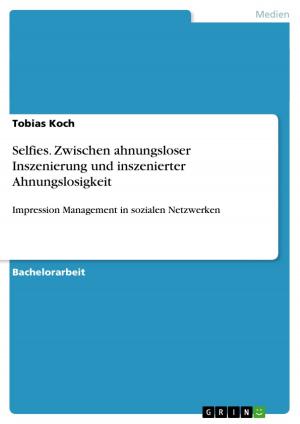Gender inequality in the 2014 Ebola Crisis and Human Security
Nonfiction, Social & Cultural Studies, Political Science, International, International Security| Author: | Wasihun S. Gutema | ISBN: | 9783668486256 |
| Publisher: | GRIN Verlag | Publication: | July 18, 2017 |
| Imprint: | GRIN Verlag | Language: | English |
| Author: | Wasihun S. Gutema |
| ISBN: | 9783668486256 |
| Publisher: | GRIN Verlag |
| Publication: | July 18, 2017 |
| Imprint: | GRIN Verlag |
| Language: | English |
Master's Thesis from the year 2017 in the subject Politics - International Politics - Topic: Peace and Conflict Studies, Security, , language: English, abstract: The purpose of this research is to examine how the 2014 Ebola crisis affected women in West Africa from a human security perspective. The goal is to articulate how gender inequality has aggravated the spread of the Ebola virus diseases due to the unequal position held by women stemming from a patriarchal doctrine ingrained in Western African communities' cultures, governmental administrative incapability, and economic and social inequality. Gender inequality, which is deep-rooted in the culture of the Western African society, played a tremendous role in the spread of the disease resulting in more cases and deaths of the Ebola Virus diseases to the women population compared to male. It thus created a human security breach where women were exposed to insecurities. Gender inequality was the resultant effect from gender differences that paved the way for insecurities. Upon examination of the Ebola crisis in West Africa, it became clear that women were the most affected segments of the society in West Africa particularly in the three most hit countries of Guinea, Liberia and Sierra Leone. Through showing the cruelty of cultural doctrine and gender inequality that have made the women population insecure, this research highlights the importance of gender and cultural equality along with better policy to protect women's rights and to raise public awareness concerning harmful culture and devouring virus like Ebola in West Africa.
Wasihun Gutema is granted Master of Theology Degree from the Western Theological Seminary in Holland, Michigan. He is teacher and preacher of the Gospel of the Authority of Christ. At present time, he is pursuing MA degree from the University of Baltimore in Global Affairs and Human Security.
Master's Thesis from the year 2017 in the subject Politics - International Politics - Topic: Peace and Conflict Studies, Security, , language: English, abstract: The purpose of this research is to examine how the 2014 Ebola crisis affected women in West Africa from a human security perspective. The goal is to articulate how gender inequality has aggravated the spread of the Ebola virus diseases due to the unequal position held by women stemming from a patriarchal doctrine ingrained in Western African communities' cultures, governmental administrative incapability, and economic and social inequality. Gender inequality, which is deep-rooted in the culture of the Western African society, played a tremendous role in the spread of the disease resulting in more cases and deaths of the Ebola Virus diseases to the women population compared to male. It thus created a human security breach where women were exposed to insecurities. Gender inequality was the resultant effect from gender differences that paved the way for insecurities. Upon examination of the Ebola crisis in West Africa, it became clear that women were the most affected segments of the society in West Africa particularly in the three most hit countries of Guinea, Liberia and Sierra Leone. Through showing the cruelty of cultural doctrine and gender inequality that have made the women population insecure, this research highlights the importance of gender and cultural equality along with better policy to protect women's rights and to raise public awareness concerning harmful culture and devouring virus like Ebola in West Africa.
Wasihun Gutema is granted Master of Theology Degree from the Western Theological Seminary in Holland, Michigan. He is teacher and preacher of the Gospel of the Authority of Christ. At present time, he is pursuing MA degree from the University of Baltimore in Global Affairs and Human Security.















